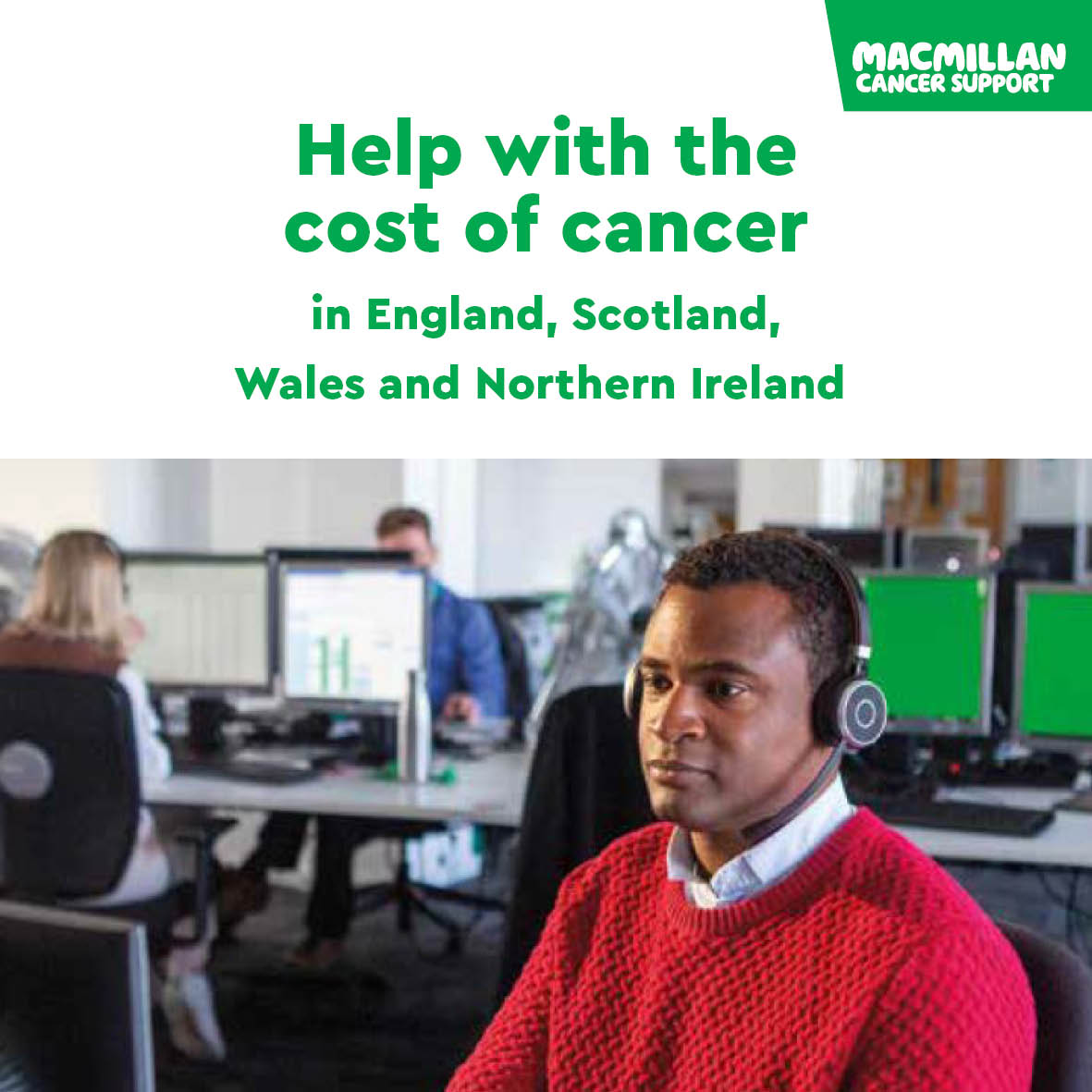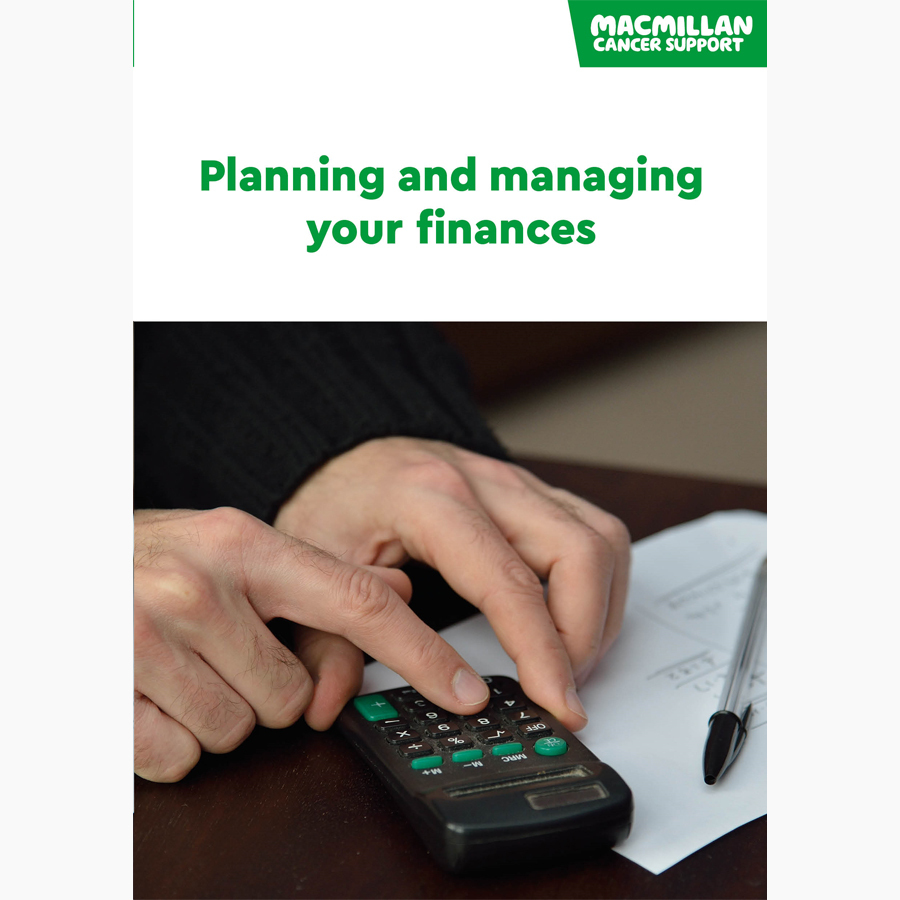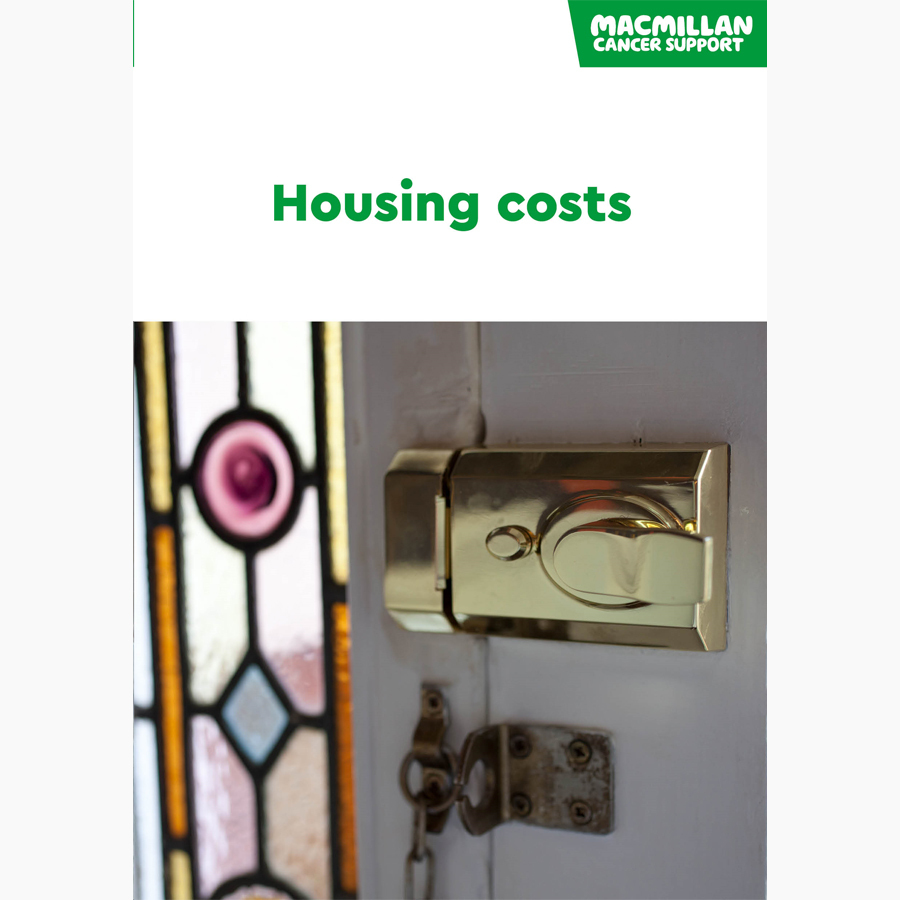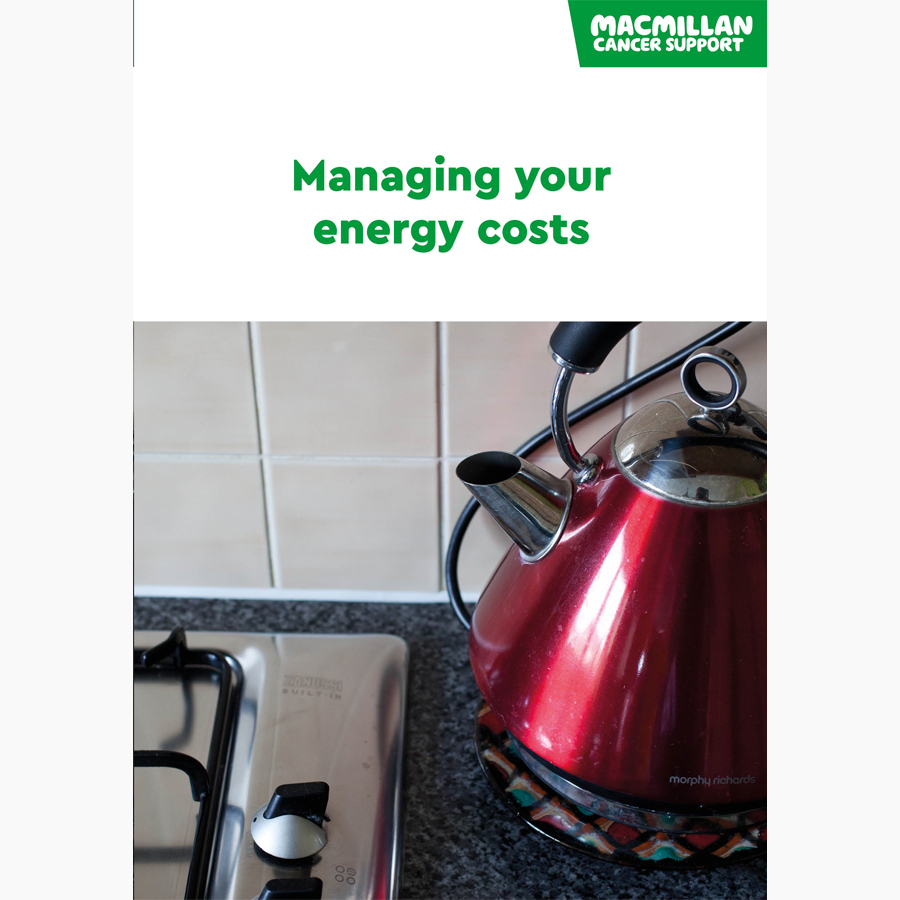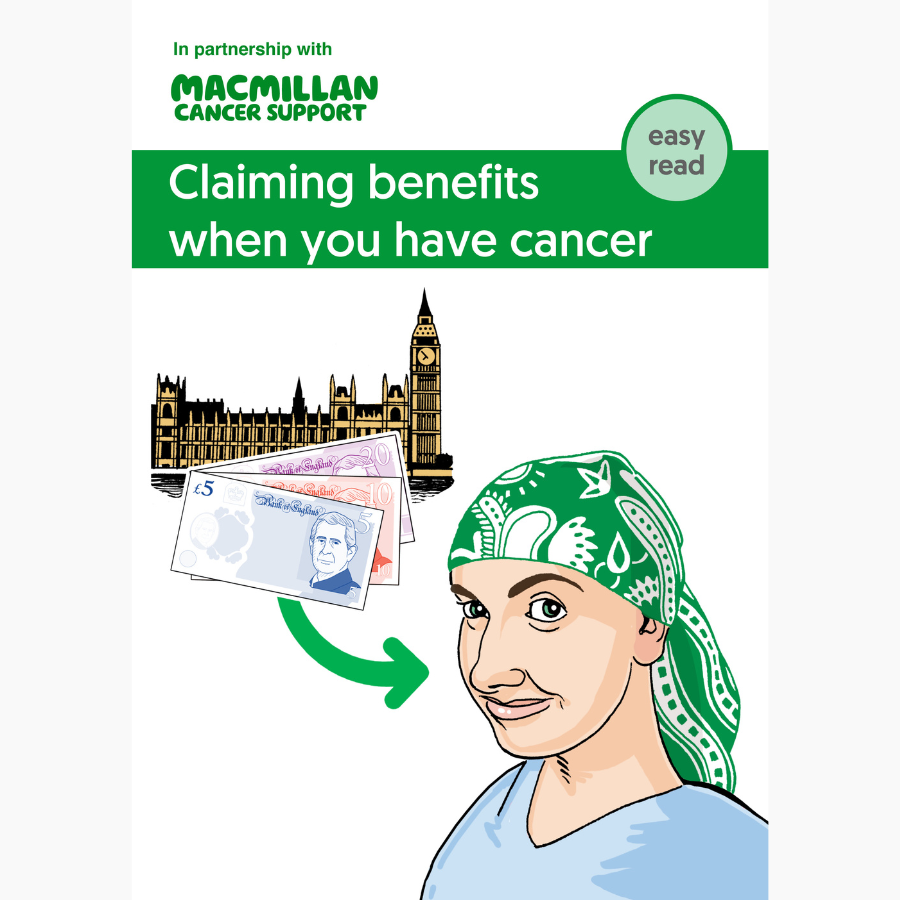Money and cancer FAQs
A cancer diagnosis can have many financial implications. Here you can find frequently asked questions about claiming benefits, getting help with living costs and managing your finances if you're impacted by cancer.
General FAQs about money
-
How can cancer affect my finances?
A cancer diagnosis can change your financial situation. It may mean you need to stop working, or work less. It can also mean spending more money on things like hospital parking, heating bills or making changes to your home.
-
What financial assistance is available for people with cancer?
People with cancer can find financial help from different places, including:
- your employer, if you work
- government benefits, such as Personal Independence Payment (PIP), Universal Credit or Housing Benefit
- your pension provider or insurance company
- grants and loans.
If you are considering borrowing money to pay for costs caused by cancer, read our advice on finding the best lenders and understanding your credit score.
Macmillan's Money advice team can help you understand what you could claim.
-
How can I manage my finances during cancer treatment?
Cancer and its treatment can mean you have less money coming in (income), and new costs that you were not expecting. The most important thing is to understand how your income and spending compare.
We have advice on managing money when you have cancer, paying back debts and planning a budget. -
What if I have to stop working because of cancer?
You may choose to stop working for a while, or permanently. Make sure you understand your rights to paid sick leave when you have cancer.
You may also have protection insurance, such as critical illness cover or income protection insurance. These can help cover your costs while you are not able to work.
If you retire due to cancer, you may be able to claim your private pension early. We have more information about benefits and grants you could claim if you have to stop work, or are on a low income. -
Can you get your State Pension early if you have cancer?
The earliest you can get your State Pension is when you reach State Pension age. This is different depending on the year you were born. GOV.UK has more information on early retirement and can help you calculate when you will reach State Pension age.
If you have a private pension, you may be able to claim it earlier to help pay for the costs of cancer.
Booklets and resources
FAQs about bills and living costs
-
Can I get help with my energy bills if I have cancer?
Help is available for people with cancer who are struggling to pay their electricity, gas and water bills. We also have tips on ways to reduce your bills by saving energy at home.
-
I’m worried to put the heating on. What else can I do to keep warm?
Our advice can help you reduce the cost of heating your home when you have cancer. You may also be able to get a grant to pay for changes to make your home warmer and more energy efficient.
-
Does your mortgage get paid off if you have cancer?
Depending on the type of insurance you have, your policy may:
- cover your mortgage payments while you are not able to work
- pay off your mortgage when you are diagnosed with a life-threatening condition.
-
My monthly mortgage payments are going up. What help is available?
If you do not have insurance to cover payments on your mortgage, there are other things you can do to reduce the cost of your mortgage. This might include:
- taking a payment holiday
- paying off your mortgage over a longer period of time
- borrowing money from the government to cover the interest payments (Support for Mortgage Interest).
-
Can you get a council tax reduction if you have cancer?
If you are on a low income, council tax reduction schemes can help towards the cost of your council tax. These are different depending on where you live in the UK.
Local councils may also offer extra funds to help people pay their council tax. These are sometimes called discretionary funds. -
Am I eligible to use a food bank?
You will usually need to be referred by a local organisation to get help from a food bank. Organisations that can refer people include:
- schools
- your GP
- housing associations
- local advice agencies such as Citizens Advice.
The Citizens Advice website has information about how you can ask Citizens Advice to refer you to a food bank.
If you are struggling to afford key essentials such as food, our blog on healthy eating, cancer and the cost of living has some practical things you can try, as well as more information about where you can get support. -
How do I find my nearest food bank and when it is open?
Food banks are community organisations. What is available will depend on where you are in the UK. Your local authority or council website might be able to help you find your nearest food bank.
One of the largest food bank organisations is the Trussell Trust. They have more than 1,300 food bank centres in the UK. You can search for your nearest food bank by town, city or postcode on the Trussell Trust website. -
Can I get travel insurance?
If you have cancer, or have had cancer in the past, it might affect how much you pay for travel insurance, and what the policy covers.
We have more information about finding travel insurance when you have cancer. Members of the Macmillan Online Community regularly share their travel insurance recommendations too. -
Is there financial support to help with home adaptations like stairlifts and wet room showers?
If you need to make changes to your home as a result of cancer, you may be able to get a grant or loan from your local council or the Housing Executive (Northern Ireland).
-
I have to take a coronavirus (COVID) test before every appointment. Am I entitled to free lateral flow tests?
The NHS now only provides free coronavirus tests for people who:
- work in healthcare or in a hospice
- have a health condition which means they are most at risk of becoming seriously ill if they develop coronavirus.
This includes people with some types of cancer, or who have had certain cancer treatments.
The ordering process is different in each country of the UK. Use the following links to order your free lateral flow tests:
Booklets and resources
FAQs about benefits available to people living with cancer
-
What benefits are cancer patients entitled to in the UK?
The benefits you can claim from the government depend on several things, including:
- your income
- how much money you have saved
- where you live
- whether you are able to work.
Using Macmillan's 10-minute benefit calculator can give you an estimate of how much you could get. Or speak to one of our money advisers on 0808 808 00 00.
-
Can you claim PIP for cancer?
Personal Independence Payment (PIP) is a disability benefit for people of working age who have significant, permanent or long-lasting problems with daily living or moving around. This can include problems caused by cancer or its treatment.
You cannot claim PIP just for having a cancer diagnosis. But you may be able to apply if you have difficulties with daily living tasks such as:- washing and dressing
- cooking and eating
These might be caused by problems with:
- physical movement
- memory and concentration
- mental health issues such as anxiety and depression
-
Do cancer patients pay for prescriptions in the UK?
Prescriptions are free for everyone in Northern Ireland, Scotland and Wales.
In England, people being treated for cancer can apply for a medical exemption certificate, which gives them free prescriptions. -
What is an exemption certificate for cancer patients?
You can apply for a medical exemption certificate if you are having treatment for:
- cancer
- the effects of cancer
- the effects of cancer treatment.
This means your prescriptions are free. To apply for a certificate, contact your GP.
-
Do cancer patients get free dental treatment in the UK?
What you pay for dental examinations and treatment depends on::
- where you live in the UK
- your age
- what benefits you get.
We have more information about understanding and reducing the cost of dental treatment.
-
Do cancer patients get free glasses in the UK?
The cost of eye tests and treatment depends on several things, including:
- where you live in the UK
- your age
- your income
- any eye conditions you have, or are at high risk of
- what benefits you get
We have more information to help you understand the cost of eye care and glasses in the UK.
-
Can you get a Blue Badge if you have cancer?
If you have problems with moving around, you may be able to get a Blue Badge. This allows you to park your car closer to where you need to go.
You automatically qualify for a Blue Badge if you have specific medical conditions or get certain benefits.
Even if you do not automatically qualify, you may still be able to get a Blue Badge. This might be if you have long-term problems with walking or severe problems using both arms.
We have more information about applying for a Blue Badge -
Can I get any travel costs for hospital appointments refunded?
If you get certain benefits, or have a low income, you may be able to claim a refund for travel costs under the Healthcare Travel Costs Scheme (HTCS).
You will usually have to pay for travel yourself and then get your refund at the hospital. In some cases, you may be able to get a payment before your appointment.
We have more information about reducing the costs of travel to your appointments, and hospital car parking charges.
Booklets and resources




